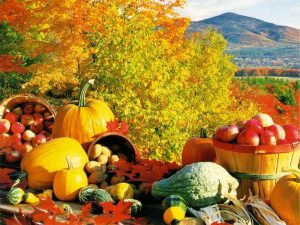With the onset of cold autumn days, our body begins to store energy so as not to waste heat. You may have noticed that the lack of sunlight and short days, you start to eat more and feel hunger much more often than on hot summer days. Typically, your body requires more fat and carbohydrates. Don’t beat yourself up about it. You are not alone in this. Most people have the same feelings as you and try to replenish their energy stores by consuming high-calorie foods. Statistics show that most people begin to consume 300 more calories every day in the fall, which leads to an average weight gain of 1.5 kg per year.

Therefore, if you want to keep your body in good shape, change your diet. But the main reason for changing the fall diet is not excess weight, it is your health. Therefore, your fall diet should contain seasonal vegetables and fruits that will provide you with a lot of vitamins and minerals. Also, you should change not only the menu but also add healthy habits that will strengthen your immunity and allow you to stay healthy in the cold season.
Eat warm food.
If you wanted something cool in the summer and preferred gazpacho soup, then autumn is the time for hot soups. You can cook them with seasonal vegetables such as broccoli, cauliflower, cabbage, bell peppers. Steamed vegetables are a good option for hot meals. Remember to consume plenty of protein, which you can get from chicken, turkey, or fish.
Include the right carbohydrates in your diet.
Whole grains give your body energy, so cutting them out of your diet can lead to fatigue. Therefore, add at least one serving of grains to your diet daily. Choose whole grains because processed grains do not contain the necessary amounts of nutrients.
Minimize your sugar intake.
Autumn is the time to spend time with friends in a cozy cafe with a cup of tea. But, most of you like to drink tea with sweets or a cake. While spending time in a pleasant company, do not follow the amount of food eaten.
Don’t eat before bed.
If you eat fully throughout the day, your appetite will be good, and you won’t feel hungry later in the evening. Overeating at night leads to various diseases and a decrease in your immunity.
Don’t eat fast food.
This type of food should be avoided regardless of the season. But if you want to conserve your energy levels in the fall, then this food is not your option. The wrong fats and empty carbohydrates do nothing for you, they just take your energy to digest it.

Nutritionists urge you to eat according to the season, how it affects your health, and includes all the protective functions of the body.
The task of your diet is to strengthen the immune system, aid digestion, and moisturize your body. Using seasonal food helps protect your body and skin from wind and cold.
The digestive system is stressed during the fall, so you should take care of it. The main principles of caring for your body in the fall is nutrition. Therefore, you should avoid excessive consumption of cold drinks, non-seasonal vegetables raw. Having the right seasonal menu will help your body conserve energy, which means you will be less sick and feel less tired and sad.
Nutritional health experts advise you on what foods you should have on your table during the fall to avoid common seasonal health problems:
- eggs,
- a fish,
- the meat of chicken or turkey,
- pumpkin,
- broccoli,
- cabbage,
- nuts,
- olive oil,
- milk,
- beetroot,
- ghee oil.
Your fall menu should contain healthy eating principles. Never use a diet that restricts your nutrient intake and tortures your body. The autumn diet should help the two bodies adapt to the new weather conditions and regime.
Comments are closed, but trackbacks and pingbacks are open.